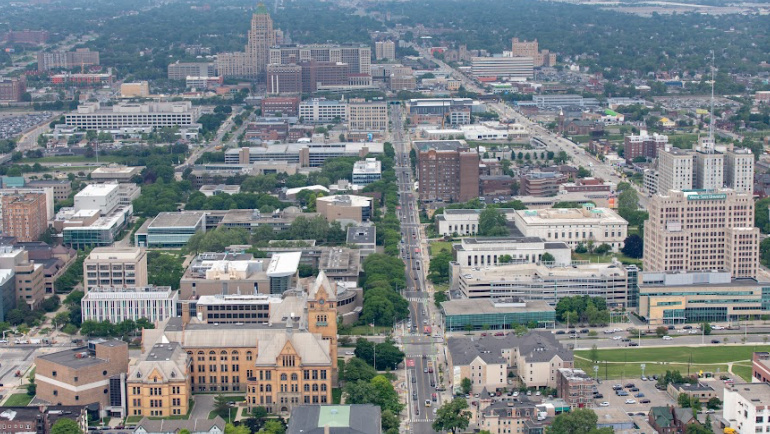
Wayne State has been ranked as one of the top universities in the country at providing the strongest return on investment, one that promotes social and economic prosperity for students with the most financial need. Third Way, a nonprofit public policy think tank, ranked Wayne State as a Tier 1 institution in its annual 2023 Economic Mobility Index (EMI). Wayne State is the only Michigan institution with a Carnegie R1 classification — which denotes the highest level of research activity — to make the list in the top tier.
Wayne State joins a prestigious list of other Tier 1-ranked R1 institutions, including the University of California Los Angeles, the University of California Riverside, the University of Illinois at Chicago, Purdue University and the University of Arizona, among others.

“In addition to a reputation for academic and research excellence, our university also has a long history of commitment to access and affordability. This ranking recognizes how well we deliver on both of those promises and the value we offer students, many of whom are from low-income or other underserved backgrounds,” said Wayne State University President Kimberly Andrews Espy, Ph.D. “A Wayne State degree can have transformative, generational impact, and we’re proud to support the success of so many to a productive career and a prosperous future.”
Developed in 2022 to more comprehensively quantify the value of higher education, the EMI ranking system emphasizes many factors that traditional academic rankings do not weigh as heavily, including institutions’ ability to set low-income students up for economic success and the proportion of enrolled students with high financial need. Among other factors, EMI also considers how long it takes for a student to recoup their educational expenses after graduation, a factor Third Way calculates using the total average cost and post-enrollment salary compared to the average salary of a high school graduate.
Using the latest data from College Scorecard, more than 44% of Wayne State’s 2023 undergraduate students were Pell-eligible, indicating they come from households with family incomes that are typically less than $50,000. On average, Wayne State students are able to pay off their educational expenses within a year and a half.
Wayne State has committed to making a world-class education affordable through a host of programs and initiatives. In 2022, 46% of first-year Wayne State students had zero out-of-pocket expenses, a figure the university plans to increase to 50% in 2023 with the new Wayne State Guarantee, which provides free tuition to incoming Michigan students whose families have an annual income of $70,000 or less.
Economic and social mobility have risen in prominence among national rankings in recent years, with the focuses shifting toward student outcomes instead of exclusive selectivity. U.S. News & World Report introduced a social mobility ranking in 2019; Wayne State was ranked the best public university in Michigan at helping students with less economic resources succeed and graduate in both the 2021-22 and 2022-23 Best Colleges rankings.
To learn more about Third Way’s Economic Mobility Index rankings, visit the Third Way website.
